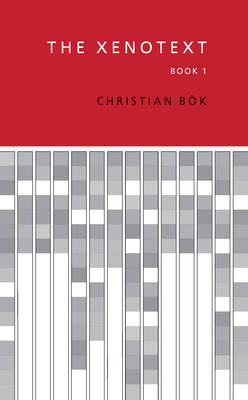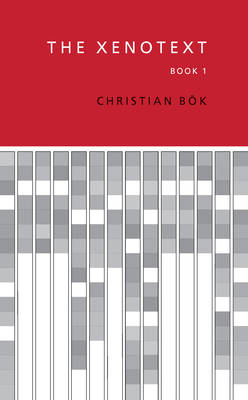
- Afhalen na 1 uur in een winkel met voorraad
- Gratis thuislevering in België vanaf € 30
- Ruim aanbod met 7 miljoen producten
- Afhalen na 1 uur in een winkel met voorraad
- Gratis thuislevering in België vanaf € 30
- Ruim aanbod met 7 miljoen producten
Omschrijving
"Many artists seek to attain immortality through their art, but few would expect their work to outlast the human race and live on for billions of years. As Canadian poet Christian Bök has realized, it all comes down to the durability of your materials."--The Guardian
Internationally best-selling poet Christian Bök has spent more than ten years writing what promises to be the first example of "living poetry." After successfully demonstrating his concept in a colony of E. coli, Bök is on the verge of enciphering a beautiful, anomalous poem into the genome of an unkillable bacterium (Deinococcus radiodurans), which can, in turn, "read" his text, responding to it by manufacturing a viable, benign protein, whose sequence of amino acids enciphers yet another poem. The engineered organism might conceivably serve as a post-apocalyptic archive, capable of outlasting our civilization.
Book I of The Xenotext constitutes a kind of "demonic grimoire," providing a scientific framework for the project with a series of poems, texts, and illustrations. A Virgilian welcome to the Inferno, Book I is the "orphic" volume in a diptych, addressing the pastoral heritage of poets, who have sought to supplant nature in both beauty and terror. The book sets the conceptual groundwork for the second volume, which will document the experiment itself. The Xenotext is experimental poetry in the truest sense of the term.
Christian Bök is the author of Crystallography (1994) and Eunoia (2001), which won the Griffin Poetry Prize. He teaches at the University of Calgary in Alberta, Canada.
Specificaties
Betrokkenen
- Auteur(s):
- Uitgeverij:
Inhoud
- Aantal bladzijden:
- 160
- Taal:
- Engels
Eigenschappen
- Productcode (EAN):
- 9781552453216
- Verschijningsdatum:
- 20/10/2015
- Uitvoering:
- Paperback
- Formaat:
- Trade paperback (VS)
- Afmetingen:
- 124 mm x 203 mm
- Gewicht:
- 226 g

Alleen bij Standaard Boekhandel
Beoordelingen
We publiceren alleen reviews die voldoen aan de voorwaarden voor reviews. Bekijk onze voorwaarden voor reviews.











